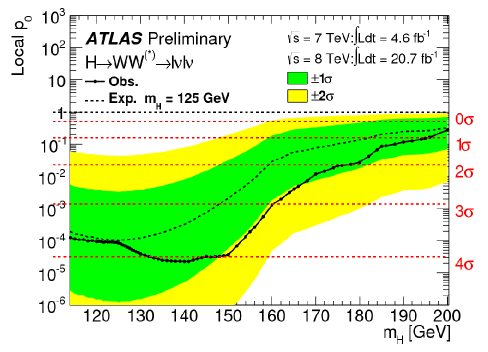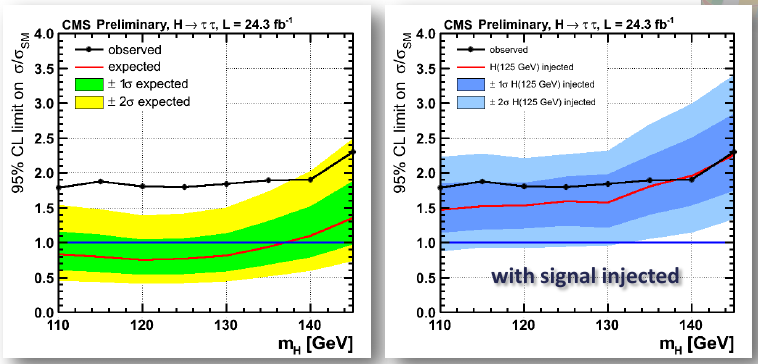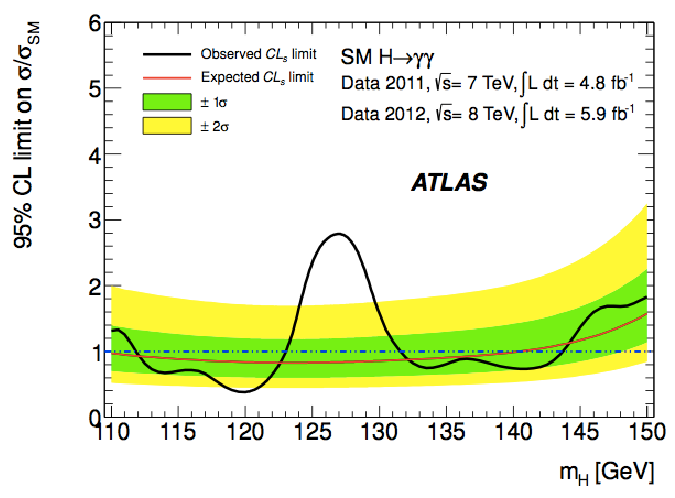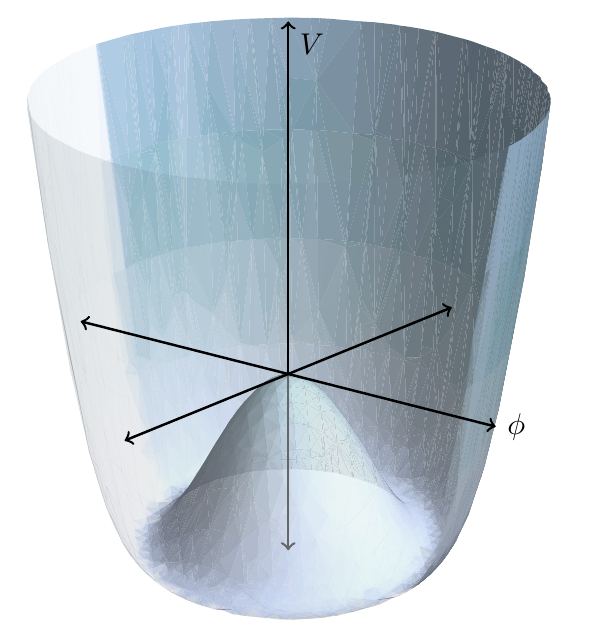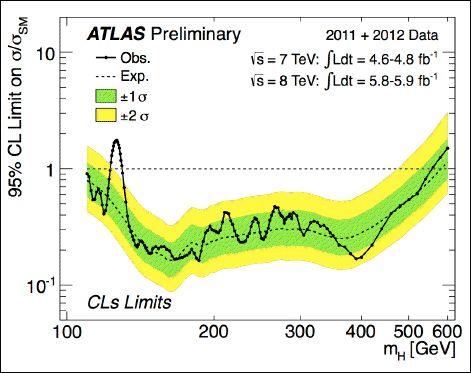The Higgs boson, fermions, and you
Posted by David Zaslavsky on
Here’s a tidbit of science that I should have written about a long time ago. Last month, there was a surge of excitement in the particle physics community when the ATLAS detector team announced that they had pretty much conclusively observed the Higgs boson decaying to tau leptons for the first time.
Now, you might be forgiven for thinking “what’s the big deal? I thought we already found the Higgs boson?” Well yes. A year and a half later, physicists are fairly confident that what they found is the standard model Higgs boson. But back in July 2012, when the discovery was first announced, all anyone knew was that ATLAS and CMS had discovered a previously unknown particle with a mass of \(\SI{126}{GeV}\). It wasn’t clear just what kind of particle it was: the standard model Higgs boson, another kind of Higgs boson, or something else entirely. That question would be resolved by gathering more data on how the new particle interacts with other, known particles, and that’s what this most recent bit of news is about.
The Higgs search: a year in review
To understand all this in more detail, let’s back …
